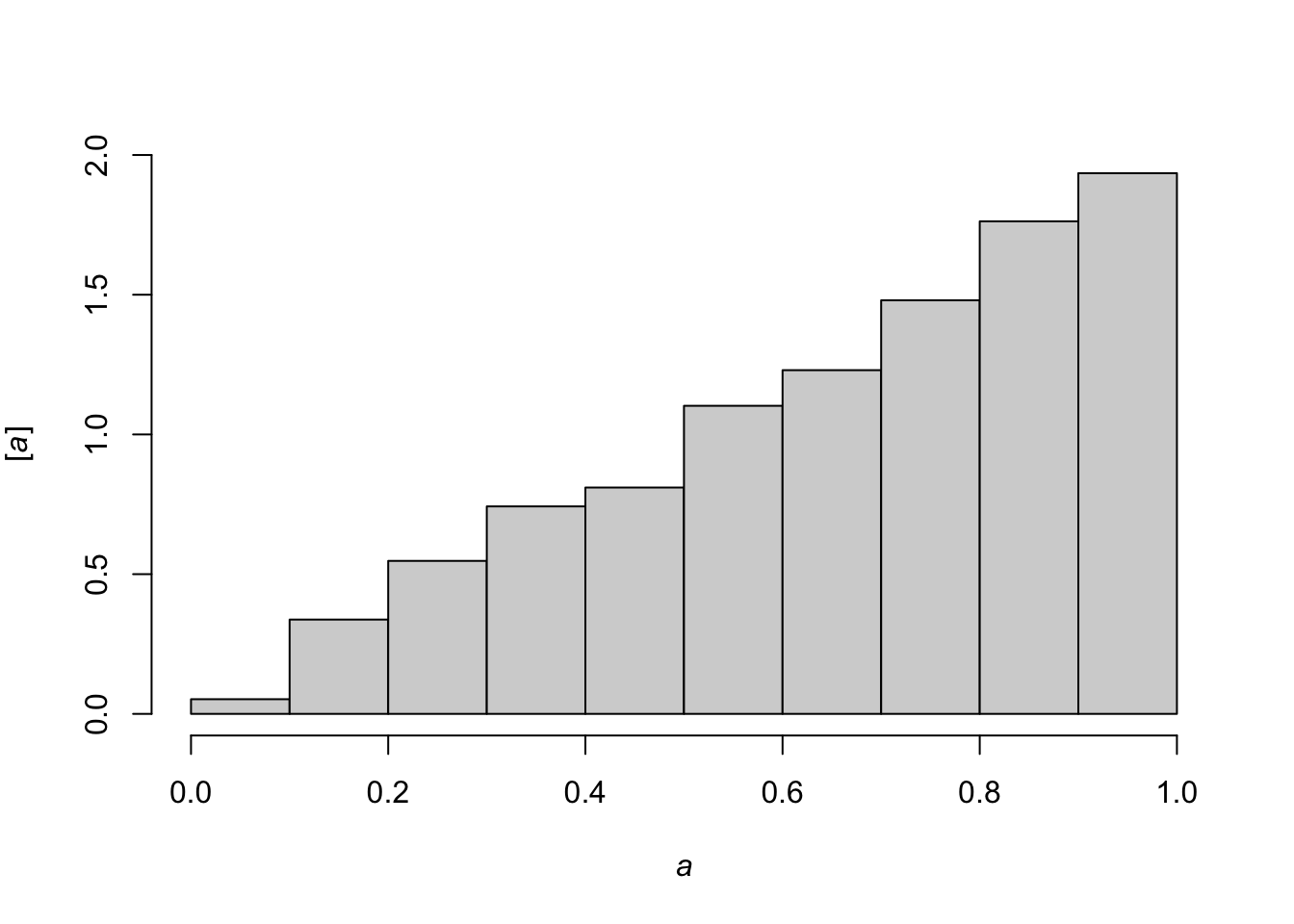32 Assignment 3 (Guide)
For this assignment let \([a]\) be a beta distribution with \(\alpha=2\) and \(\beta=1\) (i.e., \(a\sim\text{beta}(\alpha=2,\beta=1)\)).
- The first half involves using analytical mathematics to find the Metropolis-Hastings ratio. Realize that this problem differs in format from the applications in Ch. 4 of BBM2L. The important thing to realize is that we are sampling from \([a]\) and not from the posterior distribution of a Bayesian model. The Metropolis-Hastings ratio is
\[mh = \frac{[a^{(*)}][a^{(k-1)}|a^{(*)}]}{[a^{(k-1)}][a^{(*)}|a^{(k-1)}]},\] where \(a^{(*)}\) is the proposed value of \(a\) and \(a^{(k-1)}\) is the previous (or initial) value of \(a\). Since we are using a uniform PDF for the proposal distribution, the Metropolis-Hastings ratio simplifies to
\[mh = \frac{[a^{(*)}]}{[a^{(k-1)}]},\] because \([a^{(k-1)}|a^{(*)}]=1\) and \([a^{(*)}|a^{(k-1)}]=1\). Now substitute the PDF for \(a\) into the Metropolis-Hastings ratio and you get
\[mh = \frac{2a^{*}}{2a^{(k-1)}}.\] This which simplifies to
\[mh = \frac{a^{*}}{a^{(k-1)}}.\]
The R code below implements the Metropolis-Hastings algorithm.
a.init <- 0.01
K <- 5000
samples <- matrix(,K,1)
samples[1,] <- a.init
for(k in 2:K){
a.old <- samples[k-1,]
a.try <- runif(1)
mh <- a.try/a.old
keep <- ifelse(mh>1,1,rbinom(1,1,mh))
samples[k,] <- ifelse(keep==1,a.try,a.old)
}The R code below does what is asked in question #2.
hist(samples[-c(1:1000)],freq=FALSE,xlab=expression(italic(a)),ylab=expression("["*italic(a)*"]"),main="")
The R code below provides a Monte Carlo approximation to the integral
\[\int_{0}^{1}a[a]da\] where [a] is a beta(2,1) distribution with probability mass function \([a]=2a\).
## [1] 0.6691701- Trevor needs to finish this